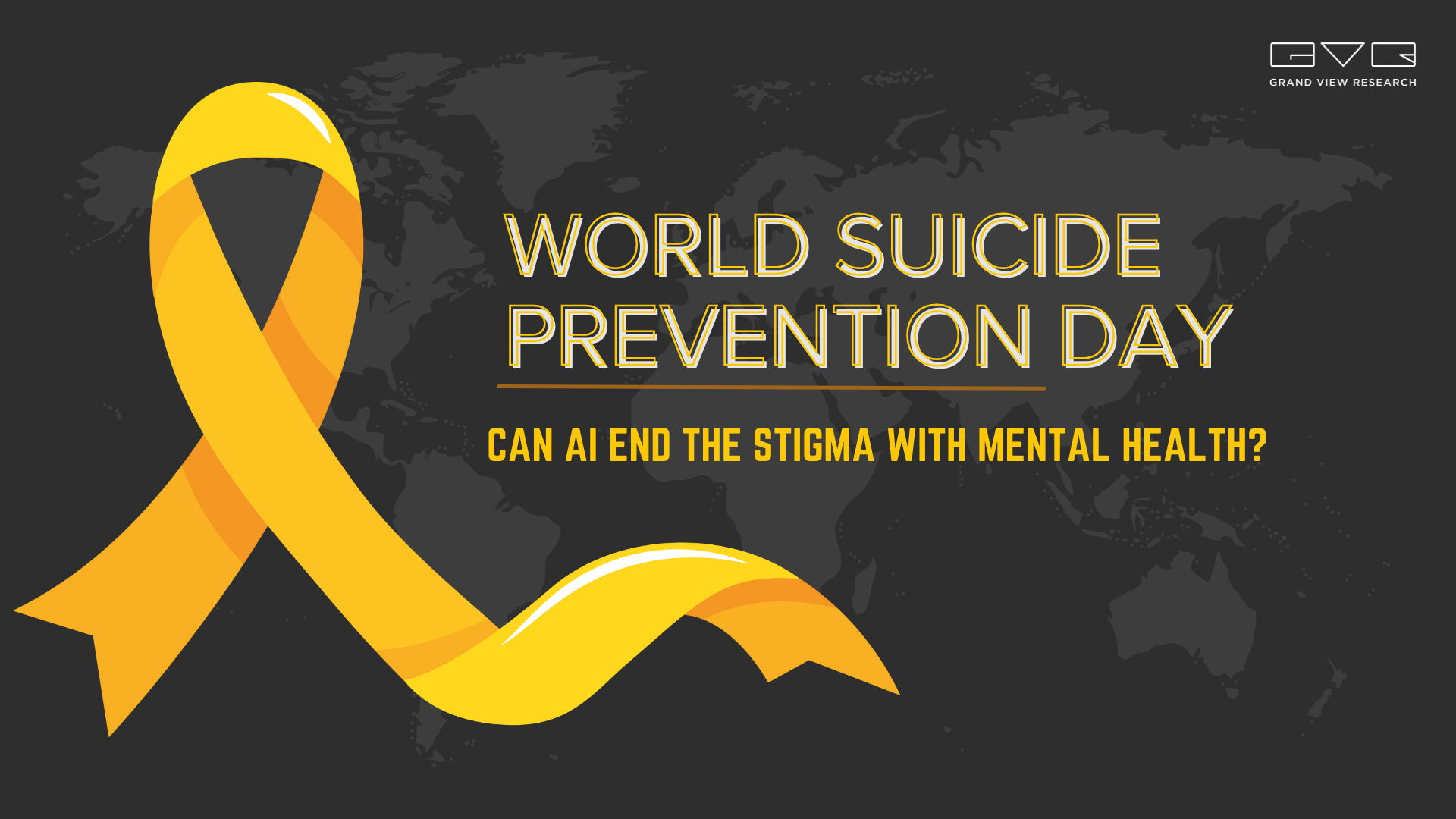World Suicide Prevention Day: Can AI End the Stigma with Mental Health?
World Suicide Prevention Day is celebrated on September 10 every year to address self-harm and suicide, raise awareness, reduce stigma, emphasize efforts to provide treatment and remember those affected by suicide. Over 720,000 people take their own lives every year, according to the World Health Organization, while North America has the highest suicide rate in the subregion in the Americas. The prevalence of stigma can lead to discrimination, shame, isolation, self-doubt and rejection. The good news is that suicide is preventable.

For the uninitiated, the International Association for Suicide Prevention, along with the World Health Organization (WHO), was the torchbearer of World Suicide Prevention Day in 2003. In essence, “Changing the Narrative on Suicide” with the call to action “Start the Conversation” is the triennial theme for World Suicide Prevention Day for 2024-2026. The theme focuses on mental health in policy-making, suicide prevention and pushing for government action.
It is not naïve to think that having a mental health condition is like having a physical health illness. Anxiety disorders and depression treatments have become the order of the day as mental illness can affect anyone and it is a real disease. In August 2024, Former England cricketer Graham Thorpe reportedly took his own life. He allegedly suffered from “major depression and anxiety” and had made a serious suicide attempt in May 2022.
As suicide and suicide attempts have an overarching impact on individuals, families and societies, can mental health apps and technologies be the silver lining in providing suicide prevention measures?
Are Mental Health Apps the Panacea?
Someone might be struggling with behind a smile and suicidal ideation might be more rampant than expected—around 21 million U.S. adults have suffered from depression, claims the National Institute of Mental Health. The pervasive depression and mental issues have compelled governing bodies, companies, NGOs and other stakeholders to weigh in on the prospect of mental health apps. In May 2024, the U.S. FDA approved the first app to help treat major depression.
Psychologists may encourage companies to invest in mental health apps that provide distraction, positive coping skills, meditation and games. Apps promoting wellness management and depression & anxiety management can be sought to reduce stress and lead a happier and healthier life.
AI in Mental Health: Trend or Just a Fad?
While still in the nascent stage, Artificial Intelligence (AI) stands as a cornerstone to boost mental health and combat depression to reduce suicide rates. It is worth noting that suicide survivors grapple with inevitable sadness, anguish, confusion, remorse, anger and shame. Some warning signs include:
-
Talking about wanting to die;
-
Increased use of drugs or alcohol;
-
Talking about feeling hopeless or burdened;
-
Showing anger or sleeping too little or too much.
Medical estimates suggest several depression cases go unreported. AI in mental health could bring the light at the end of the tunnel:
-
AI-powered tools can use digitized healthcare data to understand the cause of disorders, help clinicians and automate tasks.
-
The regional digital health action plan for the WHO European Region 2023–2030 acknowledges the need for innovation in predictive analytics using AI and big data for better health.
-
AI-driven chatbots are likely to act as therapy support tools amidst a shortage of human therapists.
-
AI-powered apps can help manage isolation, anxiety and depression and bring mental health into the mainstream.
Stakeholders up Efforts
Digital care can solve the twin problems of quality of care and timely care. In May 2024, the Department of Psychiatry at the University of Oxford, under the aegis of the National Institute for Health and Care Research (NIHR) developed an AI-driven tool PETRUSHKA. The advanced tool can apparently recommend the best antidepressants for each individual, that too, in real-time.
The need to tailor treatment for people with depression, instead of putting everyone in the same bucket, becomes a vital cog to combat anxiety disorders and personalize depression treatment. The advanced tool can personalize antidepressant treatment using information, including patients’ gender, age and symptom severity.
In July 2024, two new grants to the University of Illinois Chicago, amounting to more than USD 10 million, were provided to help researchers investigate the use an AI voice technologies to diagnose and treat depression. Besides, researchers are testing if digital tools can assist in personalizing depression treatment.
Psychiatric care is poised to go to the next level as the role of mental health apps, and AI becomes pivotal for more personalized, predictive and preventive care.
It is Time to Walk the Talk
It is high time to do away with the stigma attached to suicide and depression. Bespoke solutions, including AI and apps, can complement psychological treatments, such as cognitive behavioral therapy and antidepressant medications. These state-of-the-art technologies can be the magic pill for people engaging in self-harming behavior.
Stigma can prevent people from sharing and seeking the support they need. Recognizing warning signs, talking openly about mental health, showing compassion and providing medication, education and lifestyle changes can end stigma and save lives.
To schedule a free market intelligence database demo, please complete the form below:
Service Guarantee
-
Insured Buying
This report has a service guarantee. We stand by our report quality.
-
Confidentiality
Your transaction & personal information is safe and secure.
-
Custom research service
Design an exclusive study to serve your research needs.
-
24/5 Research support
Get your queries resolved from an industry expert.